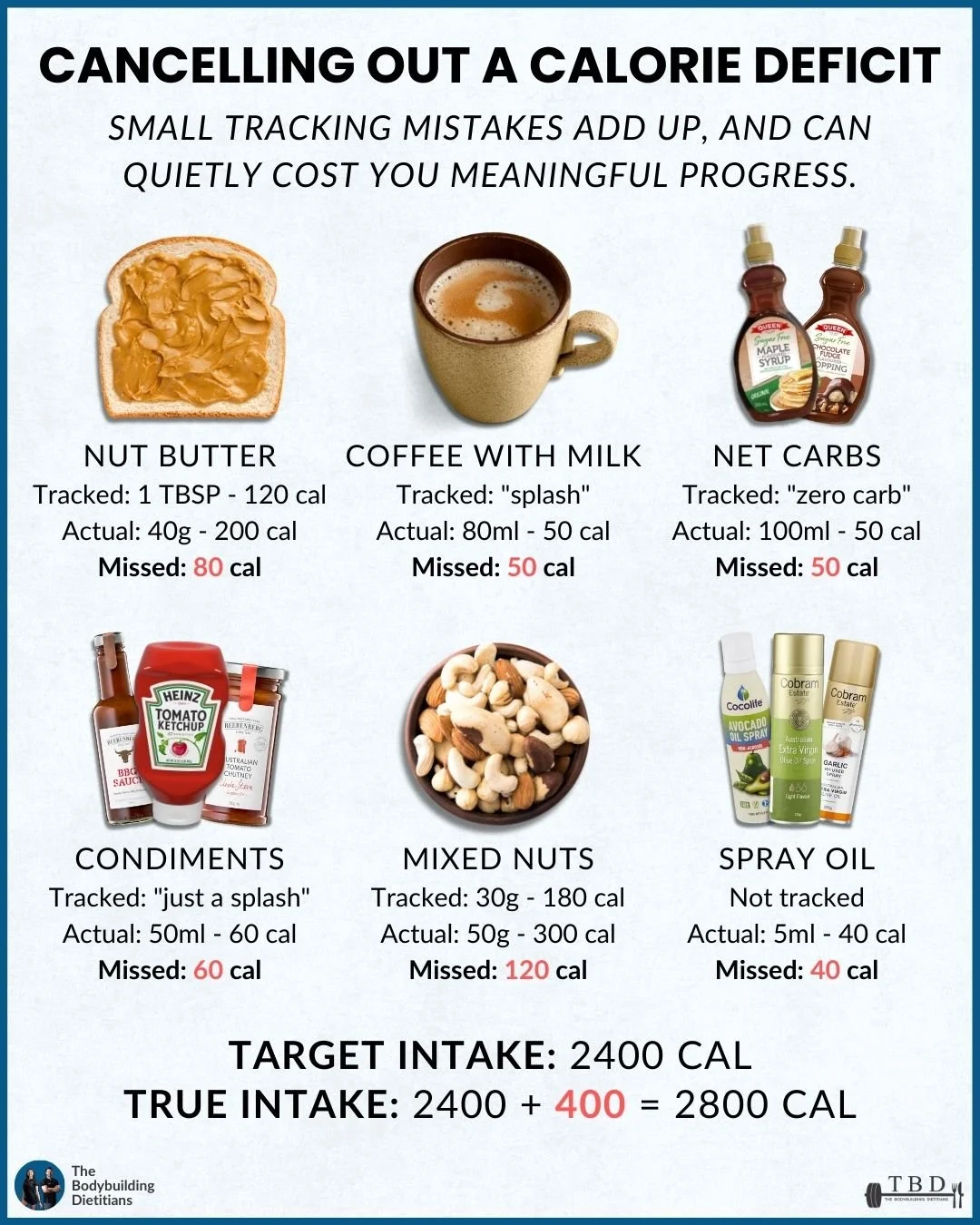Dieting can be frustrating when the numbers say you should be losing weight… yet nothing happens. When progress stalls, most people jump straight to dramatic conclusions:
“My metabolism must be broken”
“Hormones are blocking fat loss”
“It must be water retention”
“This diet just isn’t working for me”
Sometimes these factors do play a role, especially when someone is already very lean, but far more often, the cause is far more practical:
You are unintentionally eating more calories than you think.
Not because you’re lazy. Not because you lack willpower. But because calorie estimation is extremely easy to get wrong, even when you’re trying hard to be accurate.
The Invisible Calories Sabotaging Fat Loss
Small differences between what you track and what you actually consume can stack up quickly. Here are some common examples:
Nut butter
One “tablespoon” can be double the calories depending on how it’s scooped. A heaped tablespoon can easily be 80-100 extra calories without looking different.
Milk in coffee
A splash might be closer to half a cup than a teaspoon. Add two or three coffees per day and it’s 50-150 calories unaccounted for.
Nuts and trail mix
A handful weighs more than you think. The difference between 30g and 50g of mixed nuts can be 120 extra calories, from one snack.
Spray oil
A quick spray in the pan isn’t calorie-free. A 5-second spray is often 40-60 calories added without thinking.
Condiments, sauces and syrups
“Zero calorie” doesn’t mean zero usage. Regular squeezes or pours can quietly add 100+ calories across the day.
Individually, these are nothing. But collectively? They can erase a 300-500 calorie deficit every single day, which can prevent fat loss entirely
The mind thinks “I’m eating 2400 calories.” The reality may be closer to 2800+ calories.
This Isn’t About Perfection
No one needs to weigh every ingredient forever.
But when fat loss has stalled, the most productive step isn’t to panic, it’s to audit the low-awareness calories:
Oils
Nut butters
Sauces
Nuts
Coffees
“Bites”, “tastes”, and “just a little bit”
These are not mistakes, they are normal human behaviour. We just tend not to count them.
Once you tighten up these areas, fat loss typically resumes without needing a more aggressive approach.
Precision is a Temporary Tool
You don’t have to track forever. But learning how to be accurate when accuracy matters gives you a huge advantage:
Better understanding of your portions
Objective decision-making instead of guessing
Confidence that your effort matches your results
The goal is never obsessive perfection, it’s clarity.
Final Thoughts
If you’re doing everything “right” but still not losing weight, look at the little things:
The calories you don’t track are often the ones that matter most.
You’re not broken. Your metabolism isn’t broken. You just need a clearer picture of your intake.
If you’d like help improving your nutrition accuracy and making meaningful, maintainable progress, we’d love to support you. Reach out below to learn how we can work together.
